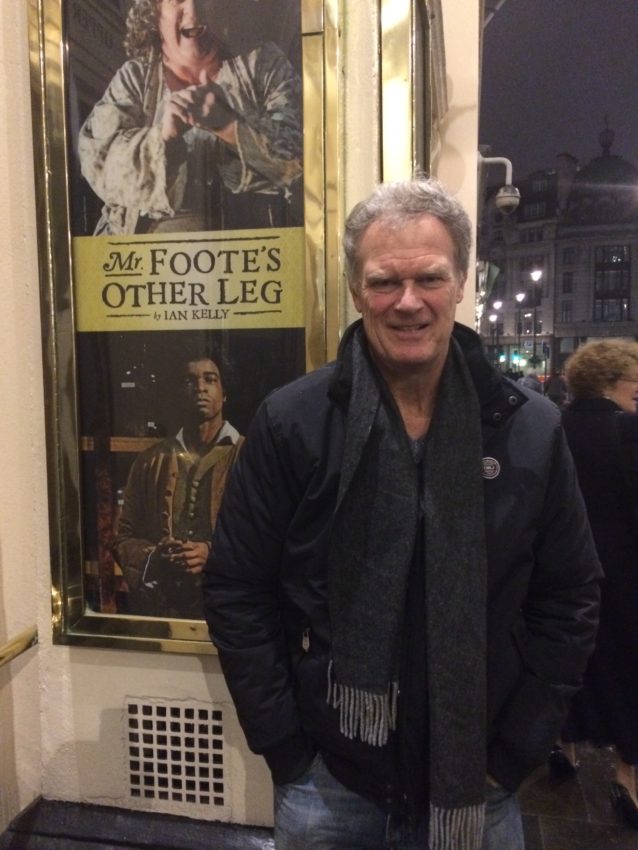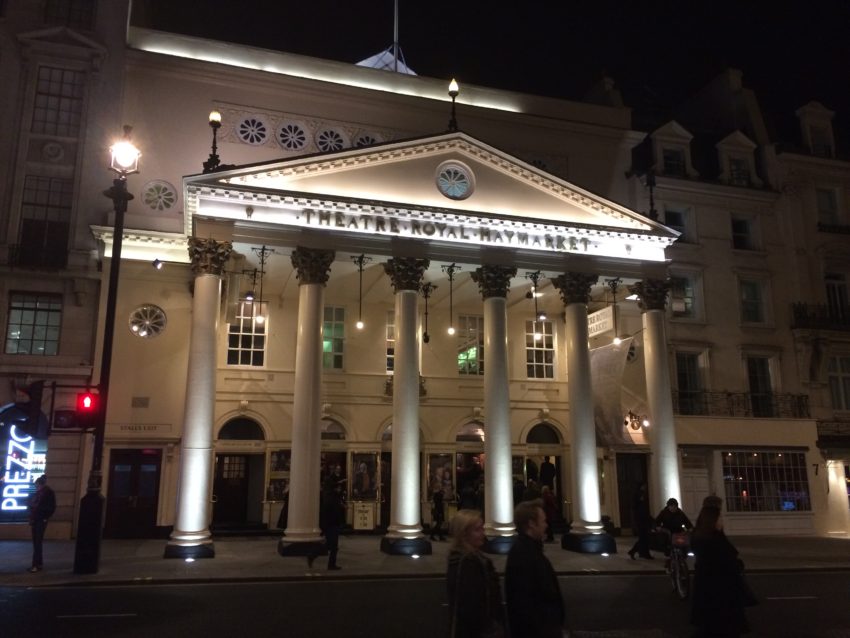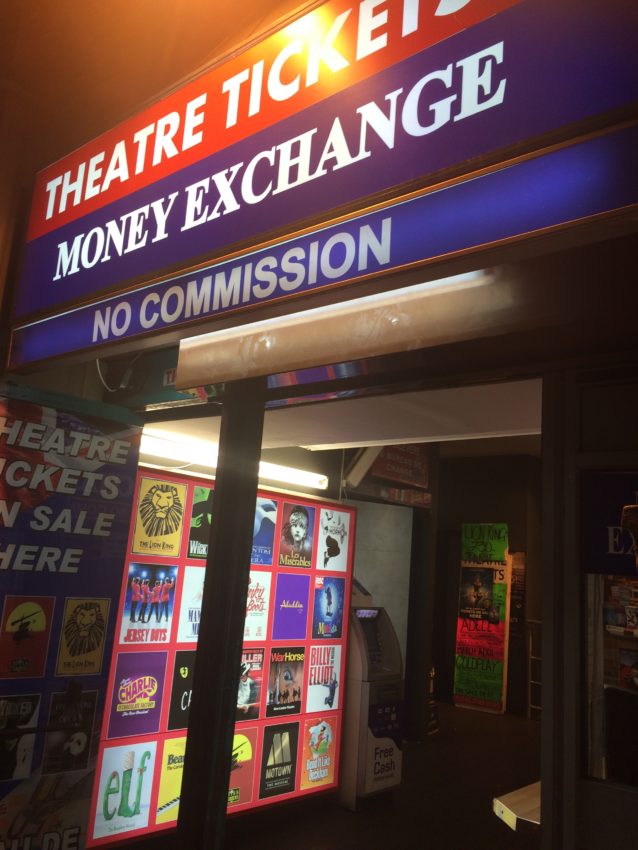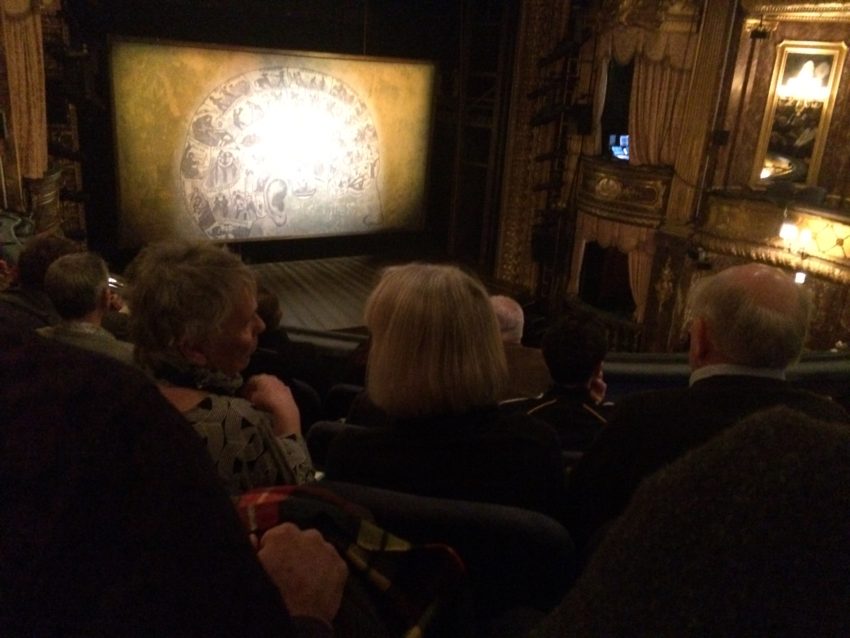London theater beats Broadway but plays about one-legged sodomites do not

LONDON — I’m a bit of a theater buff and I always feel more classy when I see a play in London. It’s much spiffier than the theater scene in New York where you can pick up most social diseases with one reconnaissance of Times Square. New York theaters are filled with starving actors in torn blue jeans and scruffy students scoring discount tickets. In London they dress better. They sound better. The theater scene seems more compact in the West End. In New York, off Broadway seemingly goes clear to Buffalo.
Like New York, however, I was never disappointed with plays I saw in London. I saw Woody Harrelson make me forget he ever played a dumb bartender in “Cheers” when I saw him star in “Night of the Iguana.” I saw a comedy about an English girls school which made me laugh all the way home to America. In 2002 I wanted to see my fantasy TV girlfriend, Gillian Anderson (“X Files”), in “What the Night is For.” However, my then girlfriend was so swayed by her savage — and, obviously, CRUELLY UNFAIR! — reviews we went to a pub instead.
Oh, how I wish I’d done that the other night.
Drinking room-temperature beer until they swept around my bar stool would have been preferable to the waterboarding I endured watching my latest play. On assignment in England, I spent my last night attending a comedy called “Mr. Foote’s Other Leg.” The play was as moronic as the title. It’s about an 18th century theater actor and sodomite who tries to keep his flailing theater alive after getting his leg amputated following a riding accident.
You know, sometimes a script just writes itself.

It was held at the Theatre Old Haymarket, one of the prettiest theaters I’ve ever seen. Built in 1821, it’s London’s third-oldest theater still in use. Its six Roman columns holding up the grand back-lit facade gives it a Classics feel as if you’re walking into an amphitheater in Ancient Greece. It’s appropriate. English theater dates back to about that time.
When the isle of Great Britain was part of the Roman Empire, the Romans built auditoriums throughout the land. During the medieval period, street theater flourished. Then came the Renaissance when, in 1592, the son of a rural West Midlands glove maker wrote his first play. More than 400 years later, William Shakespeare’s plays have been translated into Hmong. Shakespeare had a lot to work with, however, as many Italian actors settled in London during that time.
The Puritans closed the theaters for a while in the 17th century until the monarchy took interest and reopened them. King Charles II was a specially learned theater buff and theater began spreading throughout the British Empire.
It’s still going strong today. The West End, an area of about one square mile, has about 40 theaters. It is wildly popular. Attendance in 2007, the latest figures I could find, was 13 million. Ticket sales in 2013 reached $14.5 million.
On weekend nights, the area between subway (Tube) stations Piccadilly Circus, Leicester Square, Covent Garden and Charing Cross is a mob scene. I went on a Saturday night with a local friend, Caroline. We emerged from the Piccadilly Circus Tube station and I never saw this many people in the streets during the 2012 London Olympics. The streets were packed with theater mavens. The buildings were so brightly lit the slow-moving cars didn’t even need their lights.

Theater in London is on every visitor’s to-do list. But here’s a tip: First check out the plays in the “fringe” theaters. They are London’s equivalent of off-Broadway. They’re only about 20 pounds ($29) and if they’re good they move to the West End. On the West End tickets are so expensive, theaters should have bankers out front negotiating loans. Tickets for “Mr. Foote” were 90 pounds ($130). However, my friend went to the theater desk in the Piccadilly Circus station that afternoon and bought them discounted that day for 35 pounds ($50).
Considering what we watched, it was like getting a discount on a colonoscopy.

The sharply dressed crowd settled in their seats while a flock of ushers flew around my balcony area like osprey tearing flesh from people taking cell photos. The inside of the theater is draped in maroon. A medical drawing of a man’s brain was superimposed on the curtain. Afterward I suggested something more appropriate but I doubt the theater had a medical drawing of a man’s ass.
The play had potential. It featured Simon Russell Beale, one of the stars of current London theater. He’s a popular actor whom Caroline lauded all day. The play is based on a true story and is Ian Kelly’s adaptation of his own book from 2012. Samuel Foote really was a famous actor in the 18th century with some horribly dark secrets. But the story was just plain stupid. I’m not a snob. I’m a simple man. I like food for the taste, sex for the feeling and books for the plot. That goes with theater.
Bad one liners peppered this dark comedy, such as “Let me get out on a limb” and “My father married my cousin. We’re a close family.” It also had an absolutely gruesome scene, even without the graphics, of a savage doctor cutting off Foote’s leg without anesthesia. When Foote made a blatant pass at one of the young stage hands, whom he asked to remove his shirt, I asked Caroline when is London’s last call.
Even she was upset. I had no idea where she found the chainsaw.
“It breaks all the rules and makes you realize why all the rules are in place,” she said as we dashed through London trying to find a pub still open.
The play got a rousing ovation and good reviews in the British press. OK, I’m in a minority. Like public markets and cozy pubs, the theater is one of the things to do in London. Go. But keep in mind one thing: Bill Shakespeare ain’t writing anymore.

